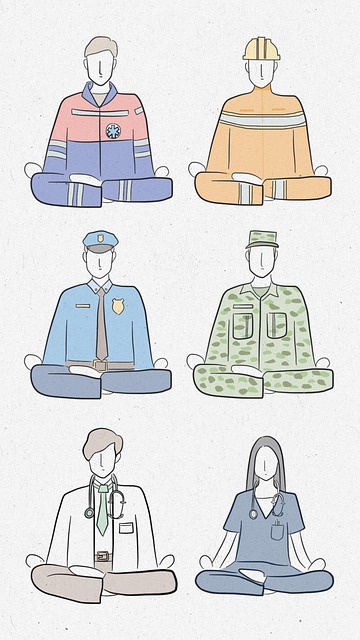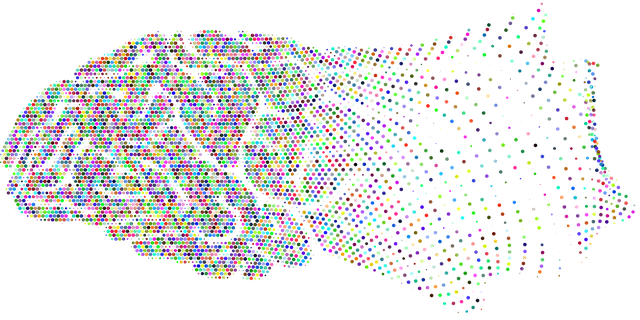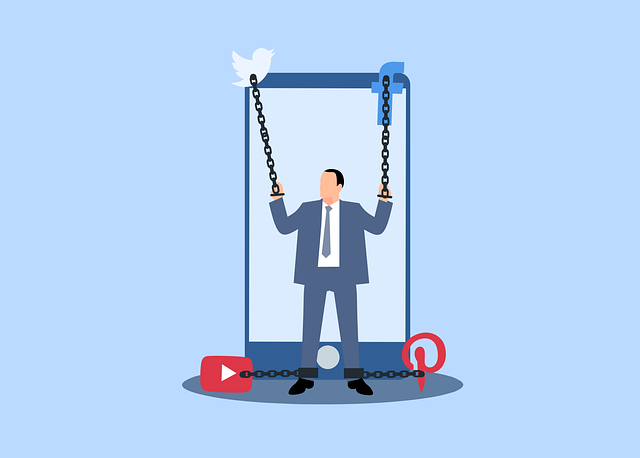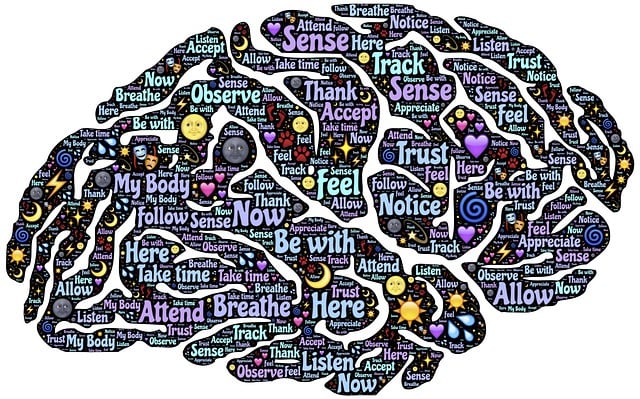Burnout is a growing concern among healthcare providers, especially those offering therapy for adults, such as EMDR certified therapists, due to emotional demands and high-pressure environments. To combat this, public awareness campaigns and professional stress management workshops can educate and support mental wellness coaching programs. Creating supportive work environments, fostering open communication, and implementing initiatives like EMDR-certified therapy help reduce burnout risk. Self-care techniques, including emotional healing and effective communication strategies, are vital for provider well-being. Integrating therapy for adults EMDR Certified and coping mechanisms offers a powerful solution to build resilience, manage stress, and enhance patient care in the healthcare sector.
Healthcare provider burnout is a growing concern, impacting not just individuals but the entire healthcare system. This article explores effective strategies to prevent burnout among healthcare providers. We delve into understanding burnout’s root causes, specifically within the medical field, and highlight innovative approaches like Eye Movement Desensitization and Reprocessing (EMDR) therapy. Additionally, we discuss creating supportive work environments, adopting self-care practices, building resilience, and fostering coping mechanisms for long-term sustainability—all vital aspects for EMDR certified therapists and healthcare professionals alike.
- Understanding Burnout Among Healthcare Providers
- The Role of EMDR Therapy in Preventing Burnout
- Creating a Supportive Work Environment
- Self-Care Practices for Long-Term Sustainability
- Building Resilience and Coping Mechanisms
Understanding Burnout Among Healthcare Providers

Burnout among healthcare providers is a growing concern in today’s demanding medical landscape. It manifests as a state of emotional exhaustion, depersonalization, and reduced personal accomplishment, often driven by excessive workload, long hours, and high-pressure environments. Healthcare professionals, especially those offering therapy for adults, such as EMDR certified therapists, are at heightened risk due to the intense emotional demands of their work.
Understanding burnout is crucial in developing effective prevention strategies. Public awareness campaigns can play a significant role in educating both providers and the public about mental wellness coaching programs available. Stress management workshops organized by professional bodies can equip healthcare providers with tools to navigate challenging situations, enhance resilience, and promote self-care, thereby reducing the risk of burnout.
The Role of EMDR Therapy in Preventing Burnout

Burnout prevention among healthcare providers is a growing concern, and innovative therapeutic approaches like Eye Movement Desensitization and Reprocessing (EMDR) offer promising solutions. EMDR therapy for adults has gained recognition as an effective method to address the emotional toll of high-stress professions. This evidence-based practice facilitates healing by helping individuals process traumatic memories and challenging experiences, reducing the risk of burnout.
By integrating EMDR into community outreach programs or even private practices, mental health professionals can enhance their ability to support colleagues. The implementation of a structured risk assessment for emotional intelligence among healthcare workers can identify those at higher risk of burnout. This allows for targeted interventions, including EMDR therapy, tailored to individual needs, fostering resilience and promoting long-term well-being in demanding healthcare environments.
Creating a Supportive Work Environment

Creating a supportive work environment is paramount in preventing healthcare provider burnout. This involves fostering a culture where open communication and collaboration are encouraged. Implementing community outreach programs can help build connections with patients, reducing isolation and promoting a sense of belonging. Additionally, providing opportunities for social skills training allows professionals to enhance their interpersonal interactions, leading to better patient care.
Embracing mental wellness through initiatives like the production of a mental wellness podcast series can normalize conversations about stress and resilience among staff. Therapies such as EMDR-certified therapy for adults offer effective tools for managing trauma and stress, contributing to improved emotional well-being. These strategies collectively create an atmosphere where healthcare providers feel valued, supported, and empowered to maintain their mental health.
Self-Care Practices for Long-Term Sustainability

In the high-pressure environment of healthcare, burnout is a significant concern for providers who dedicate their lives to caring for others. To ensure long-term sustainability and well-being, self-care practices are essential. These include incorporating emotional healing processes such as therapy for adults EMDR Certified, which has been proven effective in treating trauma and promoting resilience. By investing time in their own emotional intelligence and mental health, healthcare providers can better manage stress and maintain a healthy work-life balance.
Additionally, cultivating strong communication strategies is vital. Effective communication with colleagues, patients, and support systems allows for the sharing of burdens, seeking assistance when needed, and fostering a supportive environment. These practices not only enhance job satisfaction but also contribute to improved patient outcomes by promoting better care and understanding.
Building Resilience and Coping Mechanisms

Burnout among healthcare providers is a growing concern, but building resilience can offer much-needed protection. By integrating coping mechanisms and therapy for adults EMDR Certified, professionals can enhance their ability to manage stress and adversity. This approach not only helps in crisis intervention guidance but also forms a robust risk management plan for mental health professionals.
Emotional intelligence plays a pivotal role in this process. It equips individuals with the skills to recognize and regulate emotions, fostering adaptability and healthy communication. These strategies promote a sense of control, enabling healthcare workers to navigate challenging situations more effectively while maintaining their well-being.
Healthcare provider burnout is a significant issue, but with the right strategies, it can be mitigated. By understanding burnout dynamics, leveraging therapeutic tools like EMDR therapy for adults certified in such practices, and cultivating supportive work environments, self-care habits, and resilience, healthcare professionals can enhance job satisfaction and prevent burnout. These integrated approaches ensure long-term sustainability and foster a healthier, more fulfilling career in the medical field.














